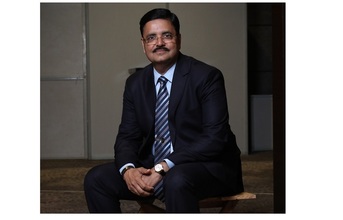
Precision manufacturing is the manufacturing of critical parts which can be used in different machines or individually that are built with extreme accuracy. Precision manufacturing commonly serves medical, aeronautical, automotive, heavy industries and any other industry that requires identical parts to be created in large quantities.
Just Imagine, a human hair's average cross-section size is about 50 microns, machines used in precision industries have a capacity of working on 2 to 3 microns. Remarkable to note is that a human eye cannot see anything smaller than 40 microns.
How the industries work
Precision industries work on tight tolerances where the monitoring of product starts from choosing correct grade of raw materials, knowing what needs to be manufactured and delivered, right treatment of raw material, hiring the right set of people and maintaining correct processes along with good packaging. The aim during the entire manufacturing process is to reduce variations to zero and working in the given set of tolerance with consistency across the process. We can say that precision manufacturing is not just a standard operating procedure, but it entails continuous process improvements and integration achieving customer satisfaction. The aim of ‘Precision Manufacturing' is to get the customer back for a repeat order and not his complaints.
Where India stands
India stands on the 12th position in production and on 8th position in consumption of machine tools in the world as per the 2017 Gardner Business Media survey. Indian precision tool industries are further categorized into machine tool producing industries and metal cutting tool industries. According to IMTMA's report, the composite production has reached Rs. 13,855 Crores in 2017-18 from Rs. 10,997 Crores in 2016-17 with a recorded y/y growth of 25.7 percent. There has been a major paradigm shift in thinking where the Indian machine tool industry is now considered as a provider of low-cost high-quality manufacturing solutions. Some of the major export destinations of Indian produce are USA, Brazil, China, Italy, Germany, Mexico, Canada, UK etc. Most of the Indian manufacturers have established their own in-house R&D labs but there still exists a huge scope for institutional collaboration for new technological developments.
Success of Make in India
Make-In-India campaign has certainly boosted manufacturing in India, though the sectors which are driving the growth for machine tool production industries are defence, electronics, automotive. TATA Advanced Systems Limited (TASL) has received a production order of F-16 Block of 70 single-engine fighter jets, Chinese phone manufacturer Xiaomi announcing four new smartphone production plants in India, Samsung inaugurated world's largest mobile factory in Noida, Korean car makers Kia motors would begin production in the second half of 2019 from Andhra Pradesh from which it would produce three lakh cars annually, and Volkswagen is investing one billion pounds to develop six new car models in India. These are some great examples of the success of this campaign.
Key factors for success
The success of precision manufacturing industries can be determined by the following factors:
Skilled workforce: No matter how advanced your machines may be, they still need to be programmed by your people. Their quality, accuracy and overall productivity depends upon the skill of the person operating the machine as he must have pre-defined knowledge before, he begins to work on a machine. Reskilling the workforce in regular intervals determines how well the workforce handles day-to-day challenges in production and also keeps them in-sync with industry trends. Training workforce to know what can be delivered as an output from a machine is also an important aspect in ‘Precision Manufacturing'.
Customer Satisfaction: Precision industry usually follows zero-rejection policy to ensure that customer gets what they desired. This, in turn, is a deciding factor which justifies the level of workmanship and machining. Just imagine if a company must import a certain pricy part from a distant country just because of quality, this highlights the importance of maintaining quality and not just delivering output.
Knowledge of machining markets: Ultimately what is important is to keep abreast of trends in markets whether it is with use of different machines, new machines, skill or reskilling requirements of the workforce are some of the decisive factors in the success of any precision manufacturing industry.
Lean Manufacturing- minimizing cost: Minimizing stock means utilizing raw materials in a defined time frame and not increasing the cost of production which is an important aspect of precision manufacturing.
Focus on core business area: Many manufacturers in the country prefer conducting all lines of businesses including hardening, turning, milling, grinding etc. under one roof. ‘Precision Manufacturing' demands to have a core business area not only to improve flexibility in working conditions but deliver quality over just massive output.
Transportation, handling and packaging: Precision manufacturing begins with proper transportation, handling, packaging and diligent measurement of raw materials. Damage caused to the raw materials can be a possible cause of an increase in scrap giving rise to the overall cost of machining the product to make it more suitable before manufacturing. Precision manufacturing, therefore, requires vigilance at all levels and processes.
Conclusion
Precision manufacturing is setting an example to whole manufacturing industry where in order to remain competitive, industries will need to integrate a high level of traceability of variations, skilling and reskilling of workforce and inclusion of latest technologies from around the globe put together to bring about the final product to be identical.
End


























